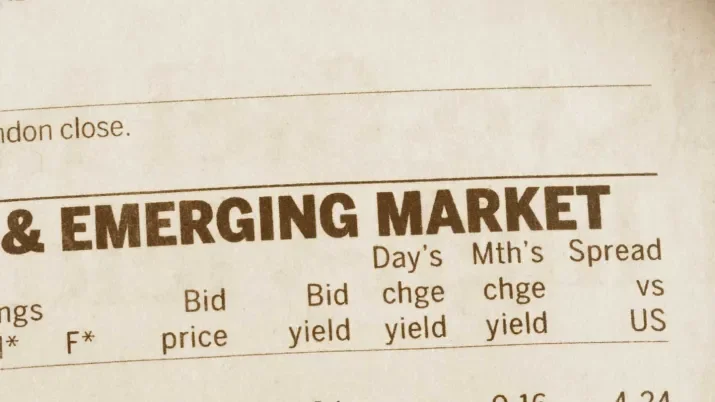Brazilian elections: Markets still agnostic on the possible winner
Fixed Income Boutique
The first round of Brazil’s general elections will take place on Sunday, October 2nd, with former president Luiz Inácio Lula da Silva and the current president Jair Bolsonaro facing each other. Thierry Larose, Portfolio Manager, discusses how markets are viewing the two candidates, the challenges facing Brazil, and the outlook for investors.
Polls are pointing to a clear victory for former president Lula da Silva. Are they right or will there be a surprise?
Election polls are giving former president Luiz Inácio Lula da Silva a comfortable lead in both the first and second rounds. While the needle is clearly pointing towards Lula’s victory, the gap between the two frontrunners has been continuously tightening since the start of the year. It remains to be seen if the recent improvement witnessed in Brazil’s economic activity and the cooling down in inflationary pressures will help Bolsonaro’s chances and turn the polls’ predictions, although that is not our base-case scenario.
Financial markets have been unusually muted on who will win the elections. What is behind this?
There is an enormous ideological gap between Lula and Bolsonaro, which is also reflected in their political agendas; the former adheres to international socialism while the latter embraces the moral values of nationalistic conservatism. However, for the moment, markets have been relatively agnostic and this is mainly for two reasons.
Although both candidates are pragmatic populists who are eager to spend any fiscal leeway on social benefits and subsidies rather than on capital formation, they are well aware of the red lines that may not be crossed in terms of debt sustainability.
Additionally, neither of them is expected to have the absolute majority in the Congress; therefore, Lula’s Workers’ Party (PT) and its left-wing coalition will have to tone down on the radically leftist rhetoric to earn the support of some center-left parties. Bolsonaro’s Liberal Party (PL) is much smaller than Lula’s PT and will also have to make a lot of concessions to gain the support of the center-right parties. Markets seem to trust that the center parties (aka Centrão) will be strong enough to play the king makers once again.
There has been a lot of debate around who will serve as economy minister under the new government. Are markets following this closely?
Definitely. A paramount signpost for markets will be the choice of the economy minister. Bolsonaro would probably keep Paulo Guedes. In Lula’s case, there’s more uncertainty about who would play this important role. Markets will welcome a moderate who would not conduct fiscally irresponsible policies.
Since Lula announced his preference for a non-technocrat, names like the Governor of Piauí, Wellington Dias, or the former Health Minister under Dilma Rousseff’s administration, Alexandre Padilha, are seen to be well positioned for that role as they are politically skilled to negotiate with the Congress and internally within the cabinet.
Recently, former Central Bank chief and Economy Minister, Henrique Meirelles, declared his support for Lula’s campaign. Markets immediately celebrated the headline, wagering on the possibility that he could join the team and take up a role that he already successfully assumed under Michel Temer’s presidency between 2016 and 2018. However, we would take this optimism with caution as Lula is unlikely to disclose his choice before the election.
What is the balance of Bolsonaro’s term in office?
The initial response from Bolsonaro to the pandemic was denial. He dismissed the magnitude and the severity of the situation and took a sceptical stance towards the efficacity of the vaccines. Fortunately, public health management is managed on the ground by the states and the municipalities that rebuked the directives from the federal government and focused on the protection of the population via lockdowns, social distancing measures and the mandatory use of masks. Additionally, Brazil has a strong long track record in terms of mass vaccination capacity which allowed the country to make up for the lost time and rapidly reach elevated levels of vaccination once the jabs eventually became available.
Brazil was an unfortunate pioneer of the recent inflation era, mainly because of the extremely loose monetary and fiscal policy conducted by the central bank and the treasury in 2019 and 2020. The Brazilian real lost one-third of its value against the US dollar between July 2019 and May 2020 which had a massive impact on the wholesale price inflation which in Brazil is an important factor affecting the consumer price inflation. Economy Minister Guedes downplayed the risks of a weak currency by proclaiming it was a good thing that could only improve the competitiveness of the country’s industrial sector. The effect was amplified in 2020 when food prices started to blow up and it was only at the beginning of 2021 when the central bank embarked on an epic cycle of monetary tightening that is now finally bearing its fruits.
Lula has been one of the most popular candidates in Latin America in recent decades. What are the reasons behind his ongoing popularity?
In his two presidential terms, Lula benefited from a goldilocks era of commodity boom driven by China’s turbo-rise in power in the global economy. Brazilian Generation-Xers remember it as a period of strong economic performance and inclusive growth with a fast growing middle-class being fuelled by poverty reduction policies. The success owes a lot to the reforms and stabilisation policies conducted by Presidents Itamar Franco and Fernando Henrique Cardoso in the 1990s, but Lula was the one who reaped the fruits including the record-high level of popularity.
What would you highlight from Lula's legacy in economic matters? And from Bolsonaro's?
Lula rode on the boom of globalisation of the early 2000s, without making major mistakes and making the most of the opening of China to the world trade and the entry of China in the World Trade Organization in 2001. Even the Global Financial Crisis in 2008 left the country relatively unscathed, compared to many developed economies. Under Lula’s office, the country experienced a phase of prosperity in contrast with the more challenging times during Bolsonaro’s presidency.
The current president will not have any particular economic legacy, simply because he handed over all economic matters to his Economy Minister Guedes from the first day of his administration. Minister Guedes will be remembered as a textbook “Chicago boy” who worked hard on reducing the size of the State in the economy, cutting both taxes and public spending, and privatizing as many state-owned companies as possible. His legacy includes several reforms of which the pension reform in 2019 was the major one. A more contentious (albeit necessary) achievement was the massive restructuring of the government’s court-ordered debt payments (precatórios) in 2021.
Which of the two candidates would sit better with the markets?
Markets would prefer to have the strongly pro-market Minister Guedes in charge of the economy for a second term. However, Lula’s victory wouldn’t necessarily cause a tantrum.
What is the markets' biggest concern about the new president?
Fiscal irresponsibility, a repeal of the market-friendly reforms implemented since President Michel Temer (especially the cap on public spendings in real terms that Lula promised to cancel), and permanent interferences of the ideological agenda into economic policies concern markets. However, we expect most reforms to hold, as a complete repeal would require a special majority that Lula is unlikely to obtain if he is elected. Having said this, the Covid crisis showed that the cap on public spendings can be breached in exceptional circumstances.
What are the challenges facing the Brazilian economy in the coming years?
The Brazilian budget is rigid, due to the large amount of expenditures that are mandated by the Constitution, the earmarking of tax revenues to specific uses and the designation of certain expenditures as “mandatory.” The effect is to insulate a large proportion of the budget from effective scrutiny each year. It is estimated that over 90% of the budget is subject to these inflexibilities. This rigidity makes it almost impossible to channel public resources towards large investment programs. As a result, time and patience is required for a president to deliver on any economic promises. This will stay like this for some time, until eventually there is a way to break this rigidity in an acceptable manner for the population.
What should be considered when investing in Brazil at a time like the present?
Some caution is warranted as volatility is expected to rise until the second round at the end of October, although not in a disorderly manner, but the better fiscal, inflation and economic outlook should be a tailwind for the first months of 2023. This could change of course if developed economies experience a hard landing, pushing global investors to seek a safe haven in the US dollar. At the Brazilian level, we want to closely monitor the current cycle of disinflation, if fiscal revenues continue to translate into a public-sector deleveraging, and if foreign investors return en masse to buy Brazilian assets once the global market sentiment improves.
The views and opinions herein may change at any time and without notice. Such information is not intended to predict actual results and no assurances are given with respect thereto. Certain information herein is based upon forward-looking statements, information and opinions, including descriptions of anticipated market changes and expectations of future activity of countries, markets and/or investments. We believe such statements, information, and opinions are based upon reasonable estimates and assumptions. Actual events or results may differ materially and, as such, undue reliance should not be placed on such forward-looking information. Vontobel reserves the right to make changes and corrections to the information and opinions expressed herein at any time, without notice.
</p<</p<</p<</p<</p<




